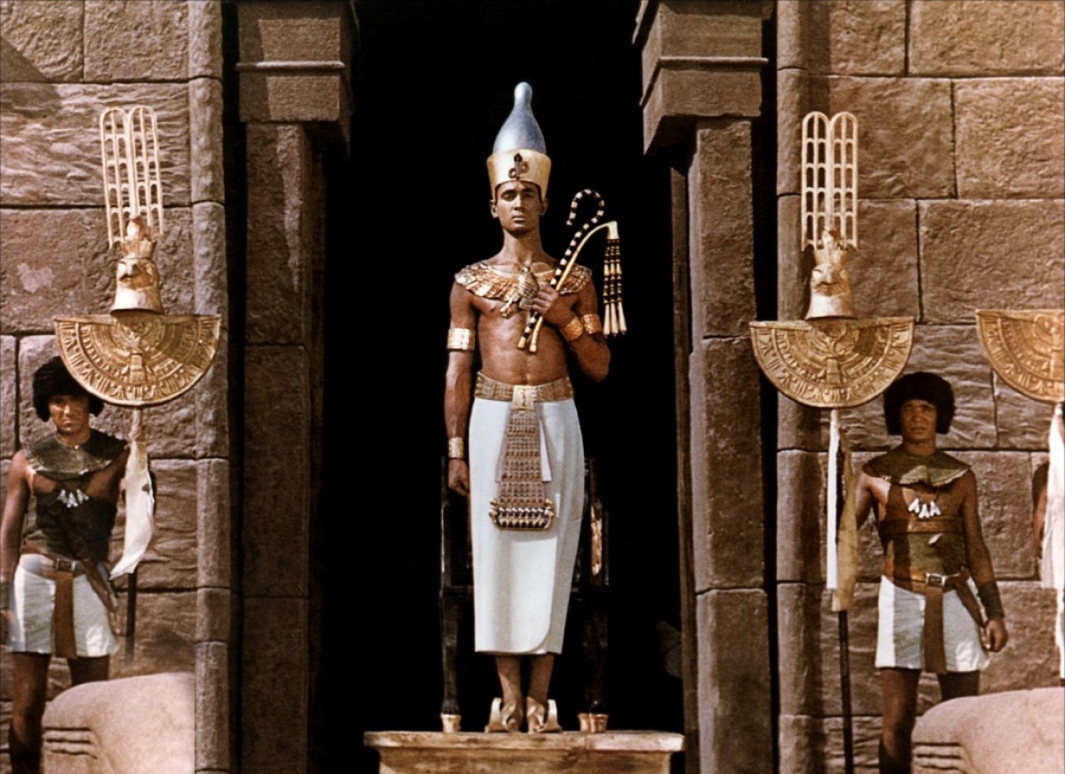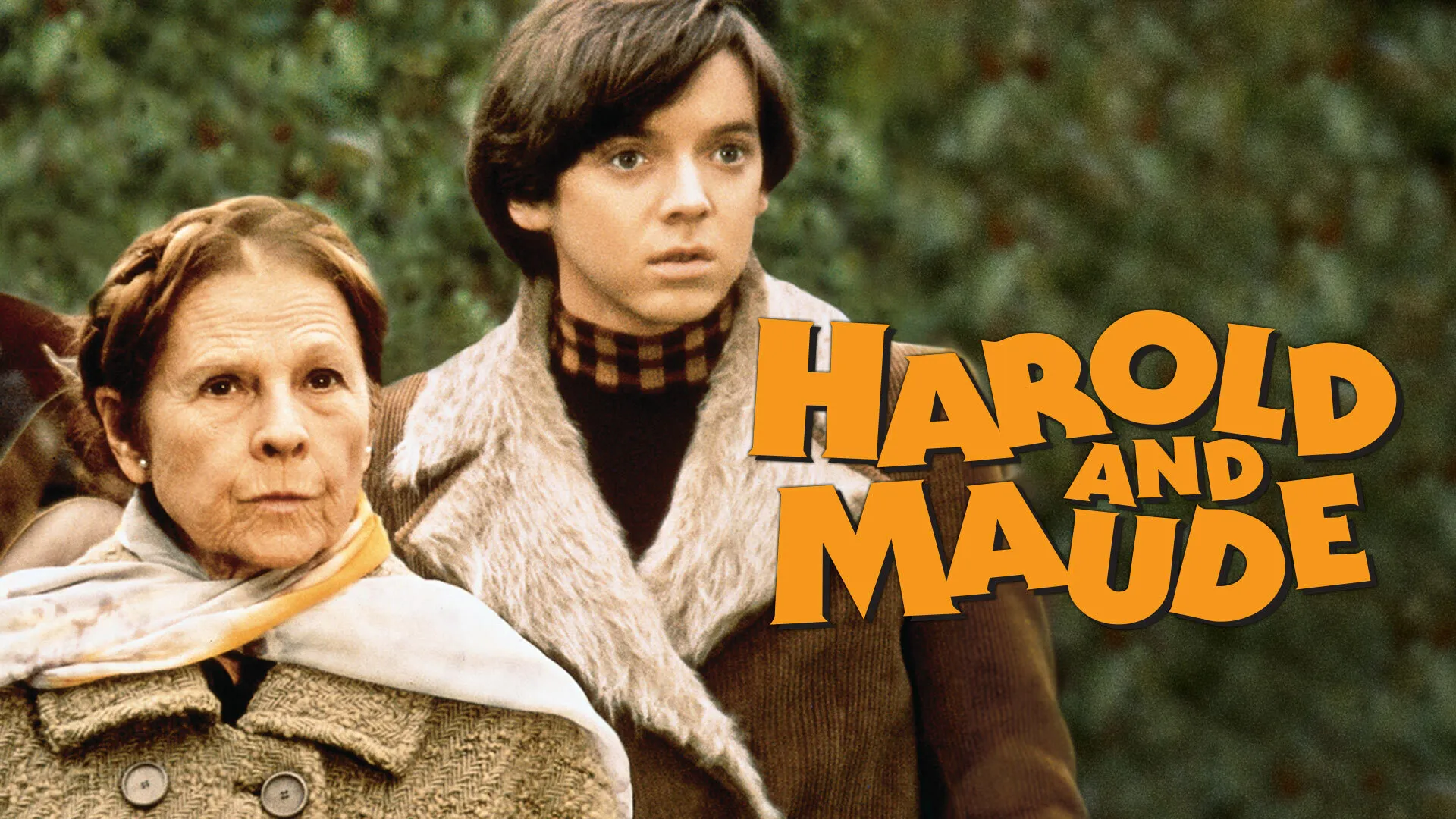Jerzy Kawalerowicz’s Pharaoh (Faraon, 1966) is not just a historical epic—it is a haunting political meditation wrapped in ancient robes. Based on Bolesław Prus’s 19th-century novel, the film tells the story of the fictional Pharaoh Ramses XIII and his struggle to assert personal and political control over a society tightly governed by tradition, religion, and powerful institutions.
Shot with breathtaking scope and visual precision, Pharaoh is both grand and cerebral, a film where sandstorms, temples, and rivers of politics converge to tell a deeply human story about power, corruption, and destiny.
Plot Summary
Set in the late 11th century BCE, the film centers on the rise of Ramses XIII, a young, idealistic prince who inherits the Egyptian throne at a time of unrest. Egypt is ruled not just by its monarch, but by a deeply entrenched priesthood, led by the scheming and calculating Herhor. The priests control the nation's grain, its wealth, and, most importantly, the minds of its people.
Ramses dreams of reform. He wants to modernize Egypt, diminish the priests' overwhelming influence, and bring more power to the secular crown. However, each attempt to shift the balance is met with quiet resistance, manipulation, and ultimately, sabotage.

As Ramses clashes with the clergy, he faces impossible decisions. War with Assyria looms. The Nile fails to flood. Famine spreads. His personal life collapses. And through it all, Herhor and his allies wait patiently, knowing that even a Pharaoh’s power has limits.
By the film’s end, Ramses is isolated and vulnerable. His ambitions dissolve into paranoia and desperation. The final blow comes not through battle, but through silent political maneuvering. Herhor emerges as High Priest and de facto ruler, while Ramses disappears—his fate sealed by the same system he tried to challenge.
Themes and Analysis
Pharaoh is less about Egyptian pageantry and more about timeless political realities. Its central theme is the illusion of power: how rulers, even those crowned by gods, are still pawns in the hands of more ancient and subtle forces.
1. State vs. Religion
At the heart of the film is the struggle between Ramses and the priesthood. It mirrors real-world conflicts between political reformers and conservative institutions that resist change, often for the sake of “tradition” or “divine order.” Herhor doesn't simply oppose Ramses—he outplays him, using the weight of religion, history, and public fear as weapons.
2. Idealism vs. Reality
Ramses XIII begins as a reformist—strong-willed, proud, and energetic. But his lack of political cunning leads him into traps. His desire to act boldly is constantly frustrated by a web of advisors, unseen deals, and the brutal logic of ruling an empire. The film doesn't romanticize rebellion—it exposes its fragility.
3. The Individual and the System
Even as Pharaoh, Ramses is only one man in a massive, ancient bureaucracy. This reflects a larger philosophical point: systems endure; individuals do not. Power, in Pharaoh, is slow, ritualized, and overwhelming. The more Ramses tries to break the system, the more he is crushed by it.

Cinematography and Style
Visually, Pharaoh is astonishing. The film was shot over three years across Egypt, Uzbekistan, and Polish studios. Cinematographer Jerzy Wójcik crafts images that feel mythic yet grounded. Long, silent takes of deserts, processions, and ritual give the film a hypnotic pace, resembling Lawrence of Arabia or 2001: A Space Odyssey in its grandeur and minimalism.
Costumes and set designs are meticulously researched, presenting an Egypt that feels authentic, not fantastical. Unlike many Hollywood epics of its time, Pharaoh avoids melodrama. There are no divine miracles, no chosen heroes. It is a world ruled by realism, rules, and human flaws.
The score by Adam Walaciński is subtle and sparse, using percussive, atmospheric sounds that blend with the environmental tones of the desert—wind, fire, chanting—enhancing the meditative nature of the film.
Reception and Legacy
Pharaoh was Poland's official submission for the 1967 Academy Awards and received a nomination for Best Foreign Language Film. Though it did not win, its impact was long-lasting.
Critics praised the film for its intellectual depth, aesthetic mastery, and political nuance. In communist-era Poland, the film’s themes of systemic power, bureaucratic oppression, and the futility of revolution were interpreted by many as subtle critiques of the regime—though Kawalerowicz always maintained its historical focus.
Today, Pharaoh is considered a masterpiece of world cinema. It stands alongside films like Andrei Rublev, The Leopard, and Barry Lyndon as one of the great historical epics that trades spectacle for psychological and philosophical insight.
Final Thoughts
Pharaoh (1966) is not a typical historical epic. It is deliberate, intellectual, and introspective. It demands patience but rewards the viewer with a powerful meditation on leadership, fate, and the machinery of civilization.
Ramses XIII is a tragic figure not because he failed to rule, but because he believed that being king meant he truly ruled.
In an age where history often repeats itself through cycles of power and resistance, Pharaoh remains eerily relevant.


-1751510377-q80.webp)
